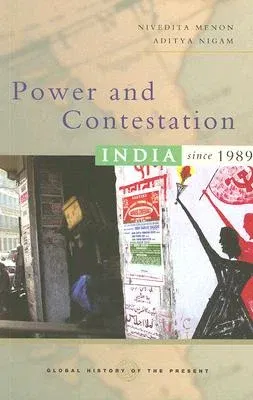Nivedita Menon
(Author)Power and Contestation: India Since 1989Paperback, 1 December 2007

Qty
1
Turbo
Ships in 2 - 3 days
In Stock
Free Delivery
Cash on Delivery
15 Days
Free Returns
Secure Checkout

Part of Series
Global History of the Present
Part of Series
Global History of the Present (Paperback)
Print Length
240 pages
Language
English
Publisher
Zed Books
Date Published
1 Dec 2007
ISBN-10
1842778153
ISBN-13
9781842778159
Description
Product Details
Authors:
Book Format:
Paperback
Country of Origin:
MT
Date Published:
1 December 2007
Dimensions:
21.56 x
14.2 x
1.5 cm
ISBN-10:
1842778153
ISBN-13:
9781842778159
Language:
English
Location:
New York
Pages:
240
Publisher:
Weight:
317.51 gm